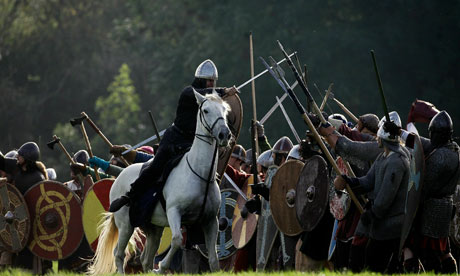“I am a fighter and not a quitter,” said Liz Truss, the day before quitting. She was echoing the words of Peter Mandelson MP over two decades ago, although Mandelson had the good sense to speak after winning a political fight rather than while losing one.
It’s a curious thing, though. Being a “fighter” is not entirely a compliment. It’s a prized quality in certain circumstances, but it’s not a word I’d use on my résumé or, for that matter, my Tinder bio.
There can be little doubt about the term “quitter”, though. It is an unambiguous insult. That’s strange, because not only is there too much fighting in the world, there’s not nearly enough quitting. We are far too stubborn, sticking with an idea, a job, or a romantic partner even when it becomes clear we’ve made a mistake.
There are few better illustrations of this than the viral popularity of “quiet quitting”, in which jaded young workers refuse to work beyond their contracted hours or to take on responsibilities beyond the job description. It’s a more poetic term than “slacking”, which is what we Gen-Xers would have called exactly the same behaviour 25 years ago. It’s also a perfectly understandable response to being overworked and underpaid. But if you are overworked and underpaid, a better response in most cases would not be quiet quitting, but simply quitting.
I don’t mean this as a sneer at Gen-Z. I remember being utterly miserable at a job in my twenties, and I also remember how much social pressure there was to stick it out for a couple of years for the sake of making my CV seem less flaky. A flaky CV has its costs, of course. But if you’re a young graduate, so does spending two years of your life in a job you hate, while accumulating skills, experience and contacts in an industry you wish to leave. Most people cautioned me about the costs of quitting; only the wisest warned me of the costs of not quitting.
Everything you quit clears space to try something new. Everything you say “no” to is an opportunity to say “yes” to something else.
In her new book, Quit, Annie Duke argues that when we’re weighing up whether or not to quit, our cognitive biases are putting their thumb on the scale in favour of persistence. And persistence is overrated.
To a good poker player — and Duke used to be a very good poker player indeed — this is obvious. “Optimal quitting might be the most important skill separating great players from amateurs,” she writes, adding that without the option to abandon a hand, poker would not be a game of skill at all. Expert players abandon about 80 per cent of their hands in the popular variant of Texas Hold’em. “Compare that to an amateur, who will stick with their starting cards over half the time.”
What are these cognitive biases that push us towards persisting when we should quit?
One is the sunk cost effect, where we treat past costs as a reason to continue with a course of action. If you’re at your favourite high-end shopping mall but you can’t find anything you love, it should be irrelevant how much time and money it cost you to travel to the mall. But it isn’t. We put ourselves under pressure to justify the trouble we’ve already taken, even if that means more waste. The same tendency applies from relationships to multi-billion-dollar mega-projects. Instead of cutting our losses, we throw good money after bad.
(The sunk cost fallacy is old news to economists, but it took Nobel laureate Richard Thaler to point out that if it was common enough to have a name, it was common enough to be regarded as human nature.)
The “status quo bias” also tends to push us towards persevering when we should stop. Highlighted in a 1988 study by the economists William Samuelson and Richard Zeckhauser, the status quo bias is a tendency to reaffirm earlier decisions and cling to the existing path we’re on, rather than make an active choice to do something different.
Duke is frustrated with the way we frame these status quo choices. “I’m not ready to make a decision,” we say. Duke rightly points out that not making a decision is itself a decision.
A few years ago, Steve Levitt, the co-author of Freakonomics, set up a website in which people facing difficult decisions could record their dilemma, toss a coin to help them choose and later return to say what they did and how they felt about it. These decisions were often weighty, such as leaving a job or ending a relationship. Levitt concluded that people who decided to make a major change — that is, the quitters — were significantly happier six months later than those who decided against the change — that is, the fighters. The conclusion: if you’re at the point when you’re tossing a coin to help you decide whether to quit, you should have quit some time ago.
“I am a quitter and not a fighter.” It’s not much of a political slogan. But as a rule of thumb for life, I’ve seen worse.


